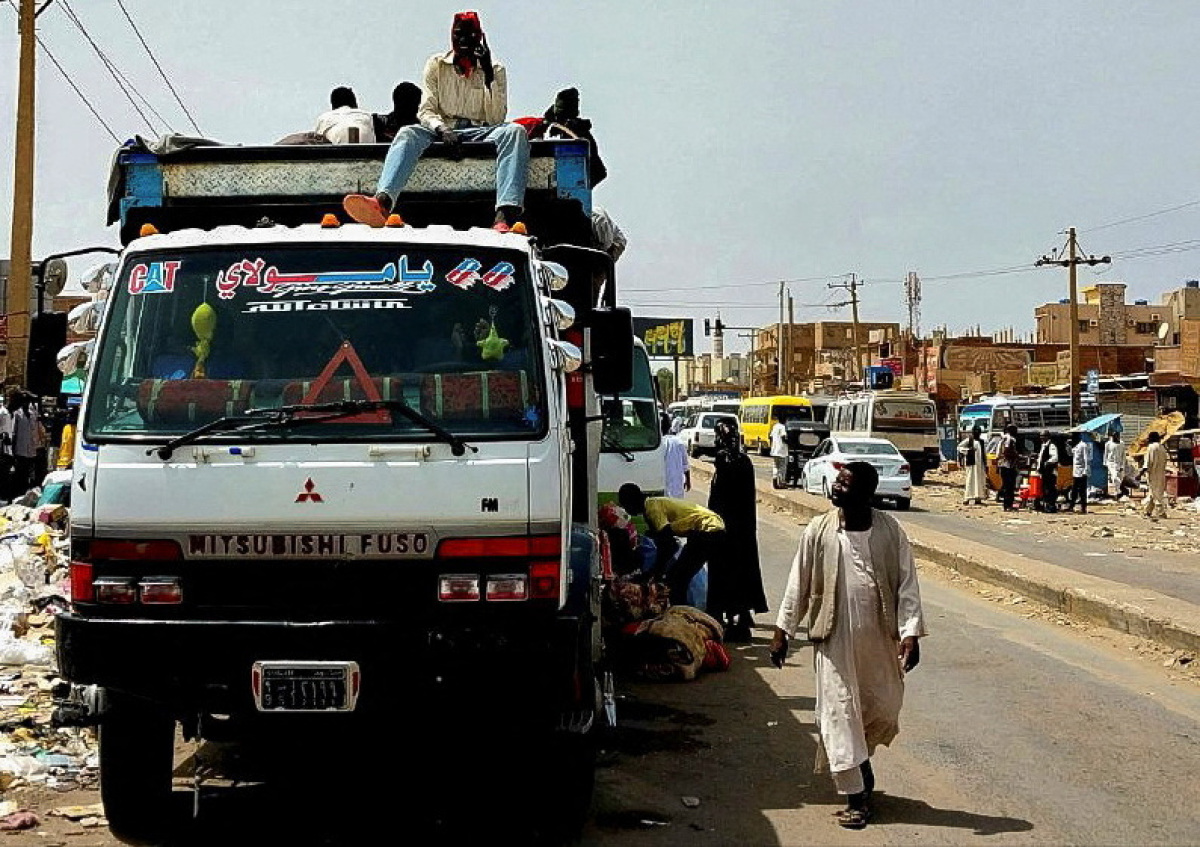Union Minister Rajeev Chandrasekhar said the BJP will get a solid majority in Karnataka this time
Bengaluru:
Claiming that the Congress manifesto for the upcoming Karnataka election released on Tuesday had no “big idea” and that the party has promised people of the state “mere handouts”, instead of the opportunities they deserve, Union Minister Rajeev Chandrasekhar said Prime Minister Narendra Modi’s sustained campaign in the state for the past few days has changed the BJP’s battle cry, with the party now firmly working towards not ending up at anything short of a majority of 113 seats, and hence, not becoming the victim of “any opportunistic alliance” like in 2018.
Mr Chandrasekhar, the Union Minister of State for Entrepreneurship, Skill Development, Electronics and Technology, is a Bengaluru resident and an MP from the state. He spoke about the promise of the Uniform Civil Code made by the BJP, the Congress party’s campaign that centred on caste and corruption, sulking leaders of the BJP and women voters in Karnataka.
Excerpts from an interview with Mr Chandrasekhar:
What do you think of the Congress manifesto? From gig workers to raising the reservation ceiling, apart from the party’s guarantees of income support to women and unemployed youth. Will they have an impact on the ground?
The Congress knows fully well that they are not going to be in a position to implement any manifesto, least of all in Karnataka, so they will put everything that represents their thought process into it. So you see appeasement, and a large number of promises that will never be kept. And outside the manifesto the same old politics of abusing the Prime Minister continues. I don’t think there is any big idea in the Congress’s manifesto. With respect to gig workers, there are many central schemes that already cover them. We don’t believe in dividing people in these kinds of classifications. There are broader protections under the labour laws, which are comprehensive and cover many aspects, including those that pertain to gig workers. I don’t think at this stage there is a need for any separate protection.

PM Narendra Modi has been campaigning and holding roadshows across Karnataka
In previous elections, parties in Karnataka have struggled to reach the magic figure of a majority count of MLAs. There have been many hung assemblies, and the focus has been a lot on post-election alliances. Why do you think this time Karnataka will give the BJP the full mandate?
This is going to be a historic election in more ways than one. And one of the historic elements of the election will be that after many, many years there will be a party that will get a decisive majority, and it will be the BJP. Last time, in 2018, the Congress and JD(S) were rejected by the people of the state. The mandate was clearly for the BJP as the single-largest party, but despite that people saw how they came together, hijacked the mandate for almost 20 months. This time what we saying – and the voters are responding and the polls are showing that – is give us five years of uninterrupted, steady, consistent development that goes from one year to the second year and so on, as you have seen in the economy or many states such as Uttar Pradesh. Because people are the biggest stakeholders here, they know that the coalition of the Congress-JD(S) will not deliver, and the BJP needs a full majority to work.
The BJP manifesto is a mix of promises centred on populism and development. Your party has taken a strong stand against “revdis (freebies)” or populism during elections. Doesn’t this dilute that?
I don’t think our approach is populism. There is a certain consistent thread where people who are poor and vulnerable get social security support from the state. We don’t do design schemes to win elections. There is a certain pattern and consistency on growing the economy, ensuring there is more investment, more job creation and then, at the bottom end of the economy, allowing people giving them whatever they need to get out of their poverty. Let me cite an example of skilling from Karnataka. Before 2014, three out of four Indians in the workforce were unskilled. Nearly 1.9 crore Indians who joined the workforce, including a large number from Karnataka, were unskilled when they joined the workforce. This is also because when they dropped out of school, they did not have the skills. The National Education Policy, which Karnataka has implemented, brings skilling and allows people to be in the workforce with skills. But the Congress says it wants to withdraw the policy. So that is the difference in the approach. We want to create opportunities to enable people to take the next step. It is empowerment and economic growth, not populism.

The BJP government in Karnataka is looking to win another term in the state
You have been a vocal voice for the development of Bengaluru. The BJP’s manifesto promises to bring tech-driven development to the city, promising facilities like you see in Berlin or Tokyo. Do you think all this is actually achievable, particularly after the way the state government efforts to handle floods or other civic issues were criticised?
See, Bengaluru has to be looked through a proper prism, dispassionately. Bengaluru had become an urban chaos, a nightmare where vested interests ruled for a decade-and-a-half till BS Yediyurappa ji and Basavaraj Bommai became the Chief Minister. In 2018, we laid out a vision for Bengaluru and actually announced a separate Bengaluru manifesto. Therefore, our commitment that we needed to change the course of the development of Bengaluru, was signalled then. Unfortunately, when we formed the government in 2019-20, we had to immediately deal with the issue of floods and then the challenge of COVID-19. So, in the last three-and-a-half years, we have got only in the last six to eight months some opportunity, time and resources to implement the Bengaluru manifesto. This time when we get the five-year mandate, we definitely want to look at overhauling Bengaluru, starting with notifying the state capital region and looking at a region-wise development plan, rather than just a city so that population, disposal, infrastructure development, creation of better standard of living for all Bengalureans can be planned over a larger region, rather than concentrating in one city, leading to problems that we have seen in the last decade. We are very committed, and I am very excited about the PM’s vision for the city, taking it to global standards without compromising on its core cultural and historical values that it stands for.
But reports and surveys suggest there are sections disappointed with the quality of governance in the state…
I am also a resident of Bengaluru and I have been in a state of disappointment for the last 20 years. I don’t deny that people are disappointed, and they want faster change. In Bengaluru particularly. And I tell them, look at these two groups of people. You have the same old Bengaluru Congress MLAs, and a revamped team of the BJP with a vision to develop Bengaluru. I just want to tell them don’t let the Congress MLAs who represent legacy and vested interests to be re-elected. They will just be roadblocks to the real development of the city. Yes, there is impatience and people want this to happen faster. To that my answer is simple – be considerate. Last three years, we were dealing with protecting lives and livelihoods, delivering vaccines and rations. The entire administration here was focussed on protecting people and fighting Covid. I know memories are short and people move on rapidly, but as a public representative it is my job to remind them that we got only three-and-a-half years. And in that, apart from the fight against Covid, in the last one year, investments worth Rs 9,000 crore have been made, metros and roads have been expanded. Significant progress has been made and a lot more is to be done. Three-and-a-half years is not enough time, and one-and-a-half years is certainly not enough time to address all the problems of the past two decades. Hence, we are asking for five full years to continue in this direction of progress.

Infrastructure is a major issue in Bengaluru, especially during monsoon when roads are flooded, leading to traffic jams.
The PM’s rallies are known to have a significant impact on the BJP’s prospects in many states. He is doing many rallies and roadshows in Karnataka too. Is this going to help the BJP substantially?
Absolutely. 100 per cent. Some days ago, we already became the single-largest party in Karnataka. We were at the 2018 levels two weeks ago, or a little more than that. But we have changed our battle cry or plea to our voters. From being the single-largest to give us a majority. We don’t want to certainly become victims of the Congress-JD(S) opportunism and end up with 109 or 110 seats and have them hijack the mandate again. A definitive clear majority has been the call, since the PM started campaigning here, and that will continue till May 8. He is here for four more days of campaigning and we are sure we will have a clear, stable majority so that five years of economic growth and development can be given to the people.
Women voters are very important in Karnataka. The gender ratio of voters has only been improving in the state. The BJP has promised to make the lives of poor women easier by promising free gas cylinders, milk and even a house. But do you think the Congress party’s promise to give women heads of households Rs 2,000 each every month might get more women to vote for the rival party?
Look, these are all tried and tested, and failed models. This is not the first time the Congress has used promises of money to distract people from larger development requirements. A woman in Karnataka or anywhere in the country wants better education for herself, and her children, health, infrastructure growth, better opportunities for her family. It is almost an insult to say that you can buy all these aspirations for improving their lives by giving them some money. In a way, the Congress manifesto mocks the intelligence and aspirations of the people of Karnataka, specifically the women, and assumes that issues such as health, education, skills, roads, trains and opportunities don’t matter. They would like to keep people poor and keep giving them handouts. In fact, our ideology, the whole approach, is different. It is about empowering them and their families to have a brighter future. This is why the PM has always spoken about revdi politics. The Congress can promise anything it wants because it knows it will never have the opportunity now to do this kind of disruptive economics.

Union Minister Rajeev Chandrasekhar said the BJP needs a full term to develop Karnataka and undo the harm one by the previous Congress-JD(S) government
Karnataka Chief Minister BS Bommai has been playing down Hindutva issues in the past few days. But matters such as the Universal Civil Code (UCC) and the National Register of Citizens (NRC) have been announced as part of the BJP’s manifesto. Is Hindutva a factor that is powerful enough to overcome caste or governance issues in Karnataka?
The UCC is not a Hindutva issue at all. This is what the Congress would like people to believe. By definition, it brings equality in rights, gender rights more importantly, religious equity and makes it clear that nobody is special or not special under the law. A Muslim woman deserves the same rights as a Hindu woman in Indian democracy. There is UCC in Goa and that is not a Hindutva State. These are basically canards being spread. As with regards to the NRC, in today’s world beset with crime and terrorism, it is certainly an important aspect for the people of Karnataka to feel safe to know who is coming from outside. Genuine concerns of the people of Karnataka have been dealt with in the BJP manifesto. Our manifesto doesn’t favour anyone. It is a promise of a governance model that addresses every Kannadiga, regardless of age, caste, gender or class.
Is the “40-per cent sarkara” corruption allegation raised by the Congress against the BJP resonating on the ground?
Corruption is 100 per cent an issue on the ground, but the Congress is raising it to distract people from its own record of 60 years, floating this canard of 40 per cent commission. Chief Minister Bommai did say that having a press conference with some crooked contractors doesn’t make it the truth. Prove it and file a case. Corruption is an issue, and people have not forgotten that it was Siddaramaiah who wanted to dilute the Lokayukta. We, on the contrary, strengthened the Lokayukta, gave them investigating powers. The son of our own MLA was arrested and his father was removed from the party. They both are in jail. Corruption is a legitimate issue and we have zero tolerance for it. It was PM Modi and the BJP government at the centre that plugged the 85-per cent leakage issue flagged by (former Prime Minister) Rajiv Gandhi himself in the eighties. It is laughable that an on-bail DK Shivakumar and out-on-bail Rahul Gandhi and Siddaramaiah, a ‘socialist’ who wore a Hugo watch as the Chief Minister, are talking about corruption. They cannot be the poster boys for any talk against corruption.
Do you think the optics of senior leaders such as Jagadish Shettar and Laxman Savdi leaving the party and joining the Congress might hurt the BJP?
Both Jagadish Shettar and Laxman Savdi are senior leaders and I know them very well. This time the party took a decision that we want new faces. Nearly 73 of the 224 candidates are new karyakartas (workers) who have worked very hard for the party and their communities. Usually, when a new generation is given an opportunity, the older generation that has enjoyed the position of MLA for decades and even Deputy Chief Ministers should step aside and let the young people grow. And they mentor them. But unfortunately in these two cases, both put their personal ambitions ahead of the state and party’s interest, and they chose to do what in my opinion was unthinkable – get into cahoots of the party they opposed for 40 years. I can tell both of them will lose as Congress candidates, and both Hubballi-Dharwad and Athani will have BJP MLAs in the next assembly.







